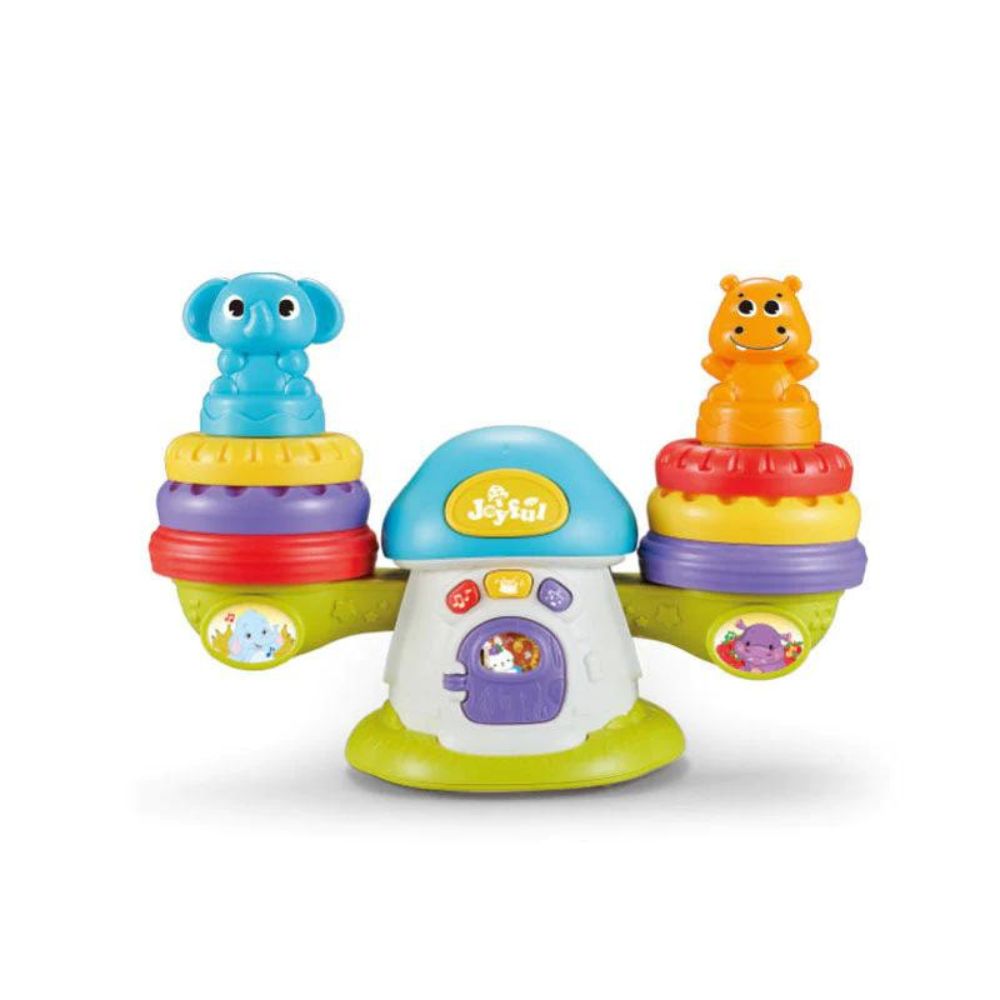What Are the Best Toys for Educational Play?
Striking the correct balance between play and instruction for kids can be difficult in the fast-paced environment of today. Thankfully, knowledge of the advantages of educational space for early infant development is expanding. Educational toys make sure kids have fun while fostering psychological, cognitive, and social abilities. We will delve into the world of educational play and examine some of the top toys that might pique a child’s interest in learning in this article.
What is Educational Play for Kids?
Often referred to as “play-based learning,” for kids is an instructional method that incorporates playtime into a classroom setting to support kids’ development of a variety of skills, understanding, and behaviors. It is a kid-centered method that acknowledges kids’ innate curiosity and allows them to experiment, discover, and learn via play. Play that is educational can take multiple forms in a variety of contexts, such as households, childcare centers, and schools.
Critical characteristics of educational play for kids include:
1- Engagement: Educational play captures a child’s interest and motivation, making learning enjoyable. It encourages active participation and curiosity.
2- Hands-On Learning: Children engage with objects, materials, or activities that allow them to manipulate, build, create, and experiment even while they rest in the baby cot bed. This hands-on approach helps solidify their understanding of concepts.
3- Imagination and Creativity: Play encourages children to use their imagination and creativity to solve problems, tell stories, and explore new ideas.
4- Solving Issues: As children play, they come across difficulties and barriers that help them develop their analytical as well as problem-solving abilities.
5- Social Engagement: Social connection is a key component of many educational play activities, teaching kids how to collaborate, share, interact with one another, and work with others.
6- Language Development: Play often involves verbal communication, storytelling, and role-playing, promoting language development and vocabulary expansion.
7- Fine and Gross Motor Skills: Various types of play, such as building with blocks or engaging in physical activities, help develop a child’s motor skills and coordination.
8- Conceptual Understanding: Educational play can teach foundational concepts like maths, science, and literacy. It helps children understand abstract ideas through concrete experiences.
9- Independence and Decision-Making: Children can make choices, take initiative, and learn from their decisions during play.
Examples of educational play activities include:
-
They are building with blocks or construction toys to explore spatial relationships and engineering concepts.
-
You are playing educational games or puzzles that enhance problem-solving skills.
-
Engaging in dramatic or imaginative play, where children take on different roles and act out scenarios, promotes creativity and social skills.
-
Participating in arts and crafts activities to encourage creativity and fine motor development.
-
Exploring nature and the outdoors to learn about the environment, biology, and science.
-
Participating in hands-on science experiments that promote curiosity and understanding.
-
Reading books, telling stories, and engaging in literacy-rich activities to develop language and literacy skills.
Educational play provides a holistic approach to learning that recognizes children learn best when actively engaged and motivated. It makes learning fun and inspires kids to become inquisitive tourists, critical thinkers, and perpetual learners. It’s a useful strategy that may be included in different learning environments to promote a child’s general growth and academic achievement.
The Power of Educational Play
Through practical activities, children are encouraged to explore, try new things, and learn through the complex notion of educational play. It emphasizes solving issues, innovation, and thinking critically, going beyond memorization. Children learn a variety of skills through instructional play, which include:
1- Cognitive Skills: Educational toys stimulate a child’s thinking, memory, and problem-solving abilities. They encourage the exploration of cause-and-effect relationships and logical reasoning.
2- Motor Skills: Toys that involve building, drawing, or crafting can enhance a child’s fine and gross motor skills, improving coordination and agility.
3-Language and Communication: Many educational baby toys promote language development, expanding a child’s vocabulary and communication skills.
4- Social Skills: Educational play can encourage sharing, teamwork, and empathy, helping children build positive social relationships.
5- Creativity and Imagination: These toys often spark a child’s creativity and imagination, allowing them to express themselves and explore new worlds.
The Best Educational Toys
Now, let’s explore some of the best educational toys that can facilitate learning through play:
1- Building Blocks: Classic building blocks help develop fine motor skills, spatial awareness, and problem-solving abilities. They encourage creativity and experimentation, making them a fundamental educational toy.
2- Puzzles: Jigsaw puzzles and brain teasers promote logical thinking, concentration, and patience. They come in various levels of complexity, making them suitable for different age groups.
3- Educational Board Games: Games like Scrabble, Chess, and Math Bingo provide a fun way to learn essential skills like spelling, strategy, and mathematics.
4- Art Supplies: Crayons, colored pencils, markers, and craft kits allow children to express themselves creatively and develop fine motor skills.
5- Educational Apps and Software: In our digital age, a wide range of educational apps and software can teach everything from maths and science to foreign languages.
6- Musical Instruments: Learning to play musical instruments can enhance cognitive skills, promote patience, and introduce children to the world of music.
7- Science Kits: Science kits often include experiments that teach children about various scientific concepts in a hands-on and engaging way.
8- Educational Books: Books are valuable tools for learning. Choose age-appropriate books that cover a wide range of subjects.
9- Coding Toys: Coding kids toys and games helps introduce kids to the programming world, enhancing problem-solving and logical thinking.
10- Math Manipulatives: Counting beads, geometric shapes, and maths-related toys make learning maths enjoyable and interactive.
Conclusion:
Educational play is essential to a child’s development, offering numerous benefits beyond the joy of freedom. By selecting suitable educational toys, parents and educators can encourage children to explore, learn, and grow in an engaging, fun, and highly effective way. Remember, the best educational toys inspire curiosity and a love for learning, setting the stage for a lifetime of intellectual growth and exploration.





